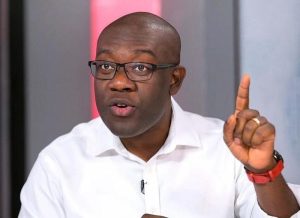The Nigerian power sector is teetering on the brink of collapse, burdened by a staggering N5.2 trillion debt owed to power generation companies (Gencos), a figure that has ballooned by N1.2 trillion in just the first half of 2025. This dire financial situation has pushed Gencos to issue a stark warning: their long-standing patriotism, which has sustained power generation despite mounting losses, is no longer sufficient to keep the lights on. The Association of Power Generation Companies (APGC) has highlighted the gravity of the situation, emphasizing that the sector’s liquidity crisis demands immediate government intervention.
The APGC’s CEO, Dr. Joy Ogaji, paints a grim picture of the financial quagmire. Gencos are owed over N4 trillion, comprising N2 trillion in unpaid 2024 invoices and N1.9 trillion in legacy debts dating back to 2015. The first six months of 2025 alone have added another N1.2 trillion to the debt burden, with no concrete payment plan in sight. This accumulating debt, coupled with the government’s inadequate budgetary allocation of N900 billion for 2025, casts a long shadow over the sector’s viability. Gencos issue monthly invoices averaging N250 billion, a figure far exceeding the government’s allocated funds, creating a widening gap between power generated and payments received.
The APGC contends that the government’s approach to the debt crisis amounts to accumulating debt under the guise of subsidies, rather than implementing a structured subsidy policy. This financial strain has forced Gencos to seek alternative funding sources outside the electricity market to cover operational costs like gas supply and other essential services, simply to maintain the national grid. The situation disincentivizes investment in capacity expansion, as increased generation translates to greater financial risk for Gencos, including higher maintenance and repair costs. This creates a vicious cycle, where the inability to invest in upgrades further jeopardizes the stability of the power supply.
Adding to the complexity of the situation, the Enugu Electricity Regulatory Commission’s proposed reduction of Band A electricity tariffs, from N209 per kilowatt-hour to N160/kWh, has been met with strong opposition from the APGC. The association argues that this tariff reduction relies on unrealistic subsidy assumptions and threatens to further destabilize the already fragile power sector. The proposed reduction, instead of alleviating the financial burden, could exacerbate the existing debt crisis, making it even more challenging for Gencos to recover their costs and maintain operations.
In response to the escalating crisis, Minister of Power Adebayo Adelabu, speaking through his spokesperson, Bolaji Tunji, acknowledges the gravity of the N5 trillion debt and affirms that the issue has been raised with relevant authorities. He expresses optimism that a portion of the debt will be settled, although a concrete timeline remains elusive. This echoes previous government assurances made in May 2025, following a Genco threat to shut down operations. These promises included a meeting with President Bola Tinubu and the immediate settlement of a substantial portion of the debt, with the remainder to be addressed through financial instruments like promissory notes within six months. However, two months later, these commitments remain unfulfilled, deepening the Gencos’ distrust and highlighting the government’s inconsistent approach to resolving the crisis.
The current predicament facing the Nigerian power sector is a complex interplay of mounting debt, inadequate government funding, and controversial tariff decisions. The Gencos’ warning underscores the urgent need for a comprehensive and sustainable solution to address the sector’s liquidity crisis. Without decisive action, the continued accumulation of debt, coupled with the lack of investment and operational challenges, threatens to plunge the nation into darkness, jeopardizing economic stability and impacting the lives of millions of Nigerians. The government’s commitment to resolving the crisis remains to be seen, as past promises have gone unfulfilled, leaving the future of the power sector shrouded in uncertainty.














